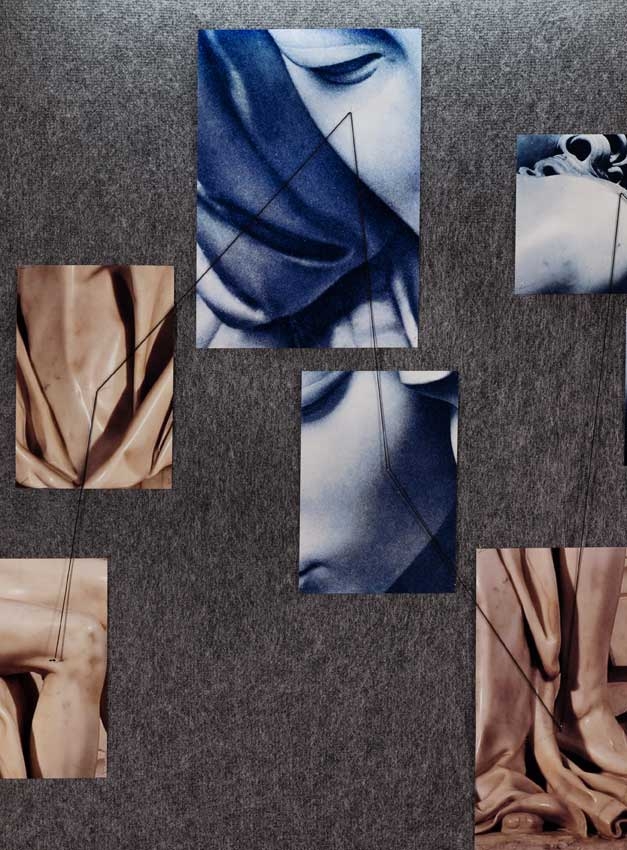Simon Fujiwara remembers an old photograph of his mother in the arms of her Lebanese boyfriend on the beach in Beirut during the 1960s. The thirty-one-year-old artist has made a name for himself by developing performative pieces based on his personal and family history. Earlier work, for example, interposed the story of a hotel his parents owned with the process of writing an erotic novel (Welcome to the Hotel Munber, 2008–10), as well as the artist’s first sexual awakening and a piece of art on view at a museum near his childhood home (The Mirror Stage, 2009–12); so the focus on his mother’s relationship with ‘another man’ (before meeting his father) is a natural theme for Fujiwara. What seems like another in a series of similar works on comparable subjects develops, however, to reveal not only the allure of Fujiwara’s practice but also a tension that is both political and personal.
Studio Pietà (King Kong Komplex) is a strand of stories that stem from one object – that photograph of his mother – which the artist recreated in his Berlin studio by hiring actors as stand-ins for his mother and her then-boyfriend. The layers of narrative here are multiple, and they are reflected upon in a 20-minute video playing on a white backdrop that was used as part of the set for the pietà image. The actor, an Arab man living in Berlin, recounts how he is always typecast in the role of a terrorist. Fujiwara admits that he chose the guy because he found him attractive, which leads the artist to explain the titular King Kong complex: that is, the association of the other – in this case the large, hairy, dark Middle Eastern man – with sexual virility, violence and passion. But it’s not Fujiwara’s fascination with the Arab man that is interesting here, it’s his simple question in the voiceover, when he wonders what would have happened had his mother married her Lebanese boyfriend: “Would I have been born in Beirut? Would we have survived?”
Studio Pietà (King Kong Komplex) is an expansion of a commission for the Sharjah Biennial in the UAE, where projects tend to emphasise their Arab or Middle Eastern dimension. The main subject reflected upon in the piece is not a complex relationship with racism as much as it is a strong tension with the locale: its history, its politics and its personal connection to the artist, both enticing and frightening. The result is a much more nuanced and intimate reflection on the Middle East than any pinpointing of this or that leftist stance.
Stepping into a darkened side room beyond the main exhibition space, one would expect to see the pietà photograph, perfectly executed. Instead there are three large prints: the actress who plays Fujiwara’s mother alone in her bathing suit; another in which, in a subversion of conventional gender roles, she holds the man, albeit by using an elaborate swinglike construction that allows her to support his weight; and a third in which the actor sits in his bathing suit in that same swing, smiling, looking vindicated.
This review was first published in the October 2013 issue.
